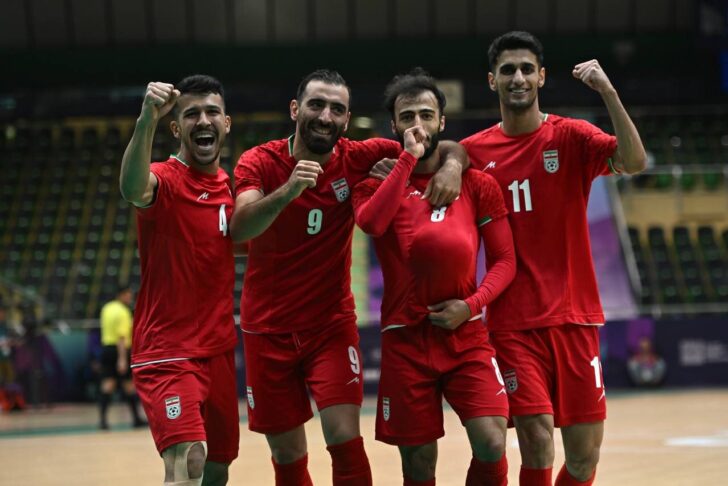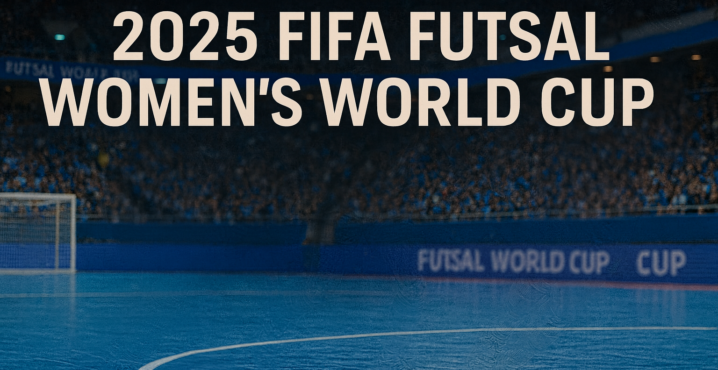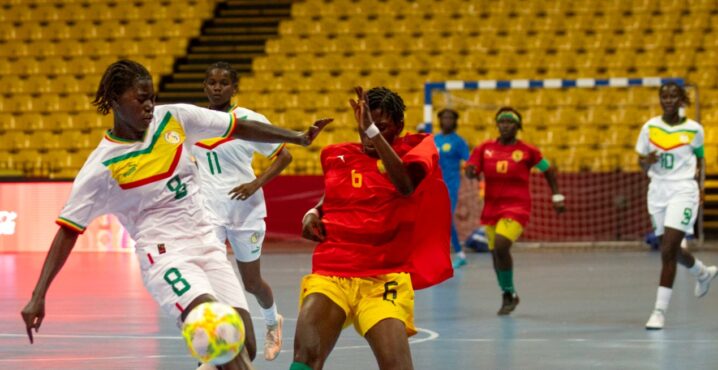Estimated reading time:12 minutes, 57 seconds
Riyadh 2025 brings together 57 nations in a celebration of sport and unity, with futsal delivering high-intensity action and crowning Iran as champions.
The 6th Islamic Solidarity Games, branded Riyadh 2025, was a major multi-sport event bringing together nations of the Islamic world in a celebration of sportsmanship and unity. Held under the theme “One Nation, Shared Vision,” the Games aimed to foster solidarity, peace, and cooperation among Islamic countries through sport. Organized by the Islamic Solidarity Sports Association (ISSA) and hosted by Saudi Arabia, this edition marked a return to the Kingdom 20 years after the inaugural 2005 Games in Mecca. Officials emphasized that the event serves as “a vital bridge for fostering peace, unity, and understanding” among member nations, aligning with the broader objective of strengthening brotherhood and mutual respect via friendly competition High-level patronage (including the Custodian of the Two Holy Mosques King Salman) underscored the importance of the Games as a symbol of Islamic unity and cooperation in line with shared values.
(Main picture source: tehrantimes.com)
Participating Nations and Sporting Events
Riyadh 2025 convened athletes from across the Islamic world. In total, 57 nations (member countries of the ISSA/Organization of Islamic Cooperation) participated, sending over 3,000 athletes to compete for glory. The Games officially ran from November 7 to 21, 2025 in Riyadh, Saudi Arabia, an elaborate opening ceremony on November 7 at King Fahd International Stadium. The competition program was impressively broad, featuring 23 sports (21 Olympic-style sports plus 2 para-sports) that catered to a diverse range of athletic talents. Athletes competed in classic disciplines like athletics (track and field) and swimming, team sports such as 3×3 basketball and handball, martial arts (e.g. judo, karate, taekwondo, wushu), and strength sports like weightlifting and wrestling. Notably, the schedule also included unique or emerging events reflecting both tradition and modernity, for example, camel racing (a cultural sport in the region) and eSports were on the roster. In addition, para-athletics and para-powerlifting were integrated to promote inclusivity for athletes with disabilities. Competitions were staged across four venue clusters in Riyadh, leveraging existing facilities in a sustainable way and showcasing Saudi Arabia’s growing capability to host large-scale sporting events.
The Riyadh Games stood out as one of the Islamic world’s premier sporting gatherings, intended to “reflect the depth and dynamism of the Islamic sporting community” roughout the two-week event, athletes and teams exemplified fair play and camaraderie, reinforcing the core mission of the Games to promote Islamic solidarity. Performances were spirited and the medal table highlighted the breadth of talent across nations. For instance, Türkiye topped the overall medal standings with 43 golds (68 total medals), followed by strong showings from countries like Egypt and Uzbekistan. The host country Saudi Arabia and other nations from Asia, Africa, and the Middle East also contributed to a vibrant competition. In summary, the 6th Islamic Solidarity Games achieved its objectives of uniting diverse countries under the banner of sports, celebrating both elite athletic achievement and the shared values of peace, friendship, and cultural exchange.
Futsal Competition at Riyadh 2025 Islamic Solidarity Games
Format and Participating Teams
One of the most anticipated sports at Riyadh 2025 was the men’s futsal tournament. Futsal (a fast-paced variant of indoor soccer) enjoys growing popularity in many Islamic countries, and its inclusion in the Games added excitement for fans. The 2025 futsal competition featured eight national teams, divided into two groups of four for the preliminary round. Group A included host Saudi Arabia, Uzbekistan, Libya, and Azerbaijan, while Group B featured Morocco, Iran, Afghanistan, and Tajikistantasnimnews.com. During the group stage, each team played the others in its group in a single round-robin. The standard futsal point system (3 points for a win, 1 for a draw) applied to determine group rankings. After these preliminary matches, the top two teams from each group advanced to the semi-finals, with the first-place team from Group A facing the second-place from Group B, and vice versa. This format ensured that only four teams would move on to compete for the medals, while the remaining teams concluded their journey at the group stage.
Venues and Schedule
All futsal matches were held at the Green Halls within the Prince Faisal bin Fahad Olympic Complex in Riyadh, an indoor venue suited for fast-moving futsal play the futsal tournament ran on an accelerated schedule from November 4 to 10, 2025 (even slightly preceding the official Games opening), making it one of the early events to kick off the competition. Group stage games took place on alternating days to allow rest and practice in between: matchdays were on Nov 4, Nov 6, and Nov 8. Each of those days featured four matches (two from each group) scheduled sequentially throughout the day. Following the group stage, the knockout rounds were held on subsequent days. The two semi-final matches contested on Nov 9, 2025, and the medal matches (bronze and gold medal games) were played on Nov 11, 2025. This tight schedule meant the entire futsal tournament was completed in just over a week, allowing the futsal finals to conclude in the middle of the Games. Despite the compressed timeline, the tournament was well-organized, and the Green Hall arena witnessed energetic crowds supporting their teams, especially whenever the host nation played.
Group Stage Results and Key Matches
The futsal group stage delivered plenty of action and a few surprises. In Group A, Uzbekistan emerged as a powerhouse, topping the group undefeated (2 wins, 1 draw) and showcasing a potent offense. The Uzbeks recorded a remarkable 13–2 victory over Azerbaijan in one high-scoring match, underlining their status as a team to watch. Saudi Arabia also performed strongly in Group A, the host nation won two of its three games (including a 5–0 win against Azerbaijan) and finished second in the group to secure a semi-final berth with 6 points. Libya and Azerbaijan, despite competitive efforts, fell short of the knockout stage. In Group B, the contests were intense as it featured two futsal heavyweights. Iran and Morocco, both among the top Islamic futsal teams, proved evenly matched, they drew 2–2 in a head-to-head group encounter, “sharing the spoils” in a high-quality game, Iran’s Mehdi Karimi scored twice in that match, while Morocco’s Bilal Bakkali and Soufiane Charraoui each scored to earn the drawtasnimnews.com. Morocco ultimately topped Group B with 7 points (two wins and one draw) and an impressive +10 goal difference, while Iran, with 5 points (one win, two draws), took the runner-up spot to also advance. Notably, Afghanistan provided a headline in the group opener by defeating Tajikistan 9–5, a high-scoring display that demonstrated the improving standard of futsal in smaller programs; however, Afghanistan could not sustain that momentum against the group’s giants. By the end of group play, the semi-final qualifiers were clear: Uzbekistan and Saudi Arabia from Group A, and Morocco and Iran from Group B earned the top two spots in their pools.
Knockout Rounds and Medal Matches
The semi-finals delivered drama befitting the occasion. In the first semi-final on Nov 9, Group A winners Uzbekistan faced Group B runners-up Iran, a clash of two Asian futsal powers. Iran prevailed with a 4–2 victory, showing tactical discipline and finishing quality. The Iranians broke a 1–1 deadlock at halftime and pulled away, with goals from the likes of Masoud Yousef and Salar Aghapour, to book their place in the gold medal match. The other semi-final saw Group B winners Morocco meet Group A runners-up Saudi Arabia in front of an enthusiastic home crowd. This match turned out to be a thriller, it was tied 3–3 in regulation time, and Morocco finally triumphed 6–3 after extra time to silence the hosts’ hopes. Saudi Arabia pushed the North African champions to the limit, but Morocco’s experience carried them through in the added periods.
On Nov 11, the tournament culminated with the medal matches. The bronze medal game between Uzbekistan and Saudi Arabia was a nail-biting affair. The two teams were evenly matched, battling to a 1–1 draw through normal time and extra time. The contest had to be settled by a penalty shootout, in which Uzbekistan edged out the hosts 6–5 to claim the bronze medal. It was a heart breaking finish for Saudi Arabia but demonstrated how far their futsal program had come, pushing a strong Uzbek side to the brink. Finally, the gold medal final saw Iran and Morocco meet once again (a rematch of their group-stage draw, but now with the championship at stake). This time, Iran left no doubt about their superiority, the Iranian team dominated the final and defeated Morocco 5–0 on Tuesday night to clinch the futsal title. Showing lessons learned from the earlier draw, Iran came out with total control: they combined swift transitions, sharp passing, and clinical finishing to overwhelm Morocco’s defense. The victory gave Iran a deserved gold medal, while Morocco secured the silver as the runners-up. Iran’s triumph was especially emphatic given that Morocco had not lost a match until that final; the result underlined Iran’s status as a futsal powerhouse in the Islamic world.
Standout Players and Performances
Iran’s futsal players celebrate a victory at Riyadh 2025. The Iranian team’s experience and depth shone throughout the tournament, led by star veterans and rising talents.
Several individual performances stood out during the futsal competition, contributing to their teams’ success. For Team Iran, the gold medal run was fueled by a mix of seasoned stars and young talent. Veteran forward Hossein Tayebi, one of the world’s top futsal players, lived up to his reputation, he scored two goals in the final and was a constant attacking threat. Alongside him, Amirhossein Gholami emerged as a key finisher for Iran, also netting two goals in the 5–0 final (and tallying multiple goals over the tournament). These players’ ability to step up in the biggest game was crucial to Iran’s title. Playmaker Masoud Yousef was another Iranian standout, contributing goals at critical moments (including a brace in a group match against Afghanistan) and providing leadership on the court.
On the Moroccan side, despite the final setback, several players impressed with skill and scoring ability. Winger Bilal Bakkali and captain Soufiane Charraoui were instrumental in Morocco’s attack, for example, both scored in the group-stage draw against Irantasnimnews.com, showcasing the team’s quality. Their creativity and technique were evident throughout Morocco’s run to the final. Uzbekistan, the bronze medalist, also showcased notable talent; forward Shakhzodjon Sadiev was among those who found the net in the semi-finals and consistently threatened opposing defenses. His teammate Akbar Usmonov and others provided a solid core that kept Uzbekistan competitive with the top teams. Additionally, the host team Saudi Arabia exceeded expectations thanks in part to standout performances from their squad (though specific players were less heralded internationally). Saudi’s cohesive team effort, including a sturdy defense and quick counter-attacks, enabled them to reach the semis and nearly secure a medal, marking a significant achievement for their futsal program. Across all teams, the tournament saw established stars living up to their billing and lesser-known players rising to the occasion, which bodes well for the development of futsal in these countries.
Final Standings of the Futsal Tournament
After a week of intense competition, the final standings in men’s futsal at the 6th Islamic Solidarity Games were as follows:
-
Gold Medal – Iran: Champions (defeated Morocco 5–0 in the final)
-
Silver Medal – Morocco: Runners-up (lost to Iran in final)
-
Bronze Medal – Uzbekistan: 3rd place (won bronze after a 1–1 draw and 6–5 shootout vs Saudi Arabia)
-
4th Place – Saudi Arabia: (host nation, 4th after narrow loss in bronze match)
The remaining teams were ranked 5th–8th based on their group stage records. Notably, the medal podium reflected a mix of regions: Asia (Iran and Uzbekistan) and Africa (Morocco), highlighting the broad talent base in Islamic futsal. Iran’s gold was a historic accolade in the context of the Islamic Solidarity Games futsal, while Morocco’s and Uzbekistan’s medals also underscored their high pedigree in the sport.
Role of Futsal within the Games and Promotion of the Sport
Within the wider context of Riyadh 2025, the futsal competition played a significant role both as a sporting highlight and as a means of promoting the sport among Islamic nations. As one of the early events to commence (with matches starting even before the Opening Ceremony), futsal drew substantial attention and set an exciting tone for the Games. Its fast pace and flair attracted fans and media coverage, contributing to the Games’ vibrant atmosphere. The inclusion of futsal in the Islamic Solidarity Games is strategically important for promoting the sport across participating countries. Football is passionately followed throughout the Islamic world, and futsal, being a variant of football, capitalizes on that enthusiasm while being more accessible (it requires fewer players and smaller venues). By featuring futsal at a multi-sport event of this scale, the Games provided an incentive for nations to invest in and develop their futsal programs, knowing there is a high-profile platform to showcase their talent. Lesser-known teams such as Afghanistan, Tajikistan, and Libya gained invaluable experience by competing against elite sides like Iran and Morocco. These matchups (e.g. Afghanistan facing the Asian and African champions in group play) were described as potentially “spectacular and challenging,” underlining how smaller nations can elevate their level through exposure to top competition. The tournament thus served as a catalyst for growth, inspiring young players and coaches in many countries to pursue futsal with greater support.
Furthermore, futsal’s presence reinforced the Games’ mission of solidarity and exchange. Players from various cultural and regional backgrounds interacted on the court, exemplifying friendship through sport. The camaraderie and respect evident in matches, from pre-game handshakes to post-match jersey exchanges, embodied the spirit of unity that the Games seek to champion. In the words of ISSA officials, events like this use sport to bridge divides: every athlete and team carries “a message of hope” that through competition and respect, “barriers can be overcome”. The futsal competition, with its blend of competition and fraternity, contributed strongly to that narrative. It showcased how a shared love of a sport can bring together Islamic nations in celebration of both diversity and common values.
In summary, the futsal tournament at the 6th Islamic Solidarity Games was not only a thrilling contest that crowned a deserving champion, but also an important vehicle for promoting futsal among Islamic countries. By highlighting top-tier futsal talent and encouraging broader participation, the competition helped raise the sport’s profile in the region. Its success at Riyadh 2025 will likely have a lasting impact: boosting futsal’s popularity, motivating national sports authorities to support futsal development, and strengthening the bonds between Islamic nations through the beautiful game’s indoor cousin, all in alignment with the Games’ overarching solidarity objectives.
Organ Donation
Futsal Focus is a supporter of Dáithí Mac Gabhann and his family’s campaign to raise awareness of Organ Donation. We encourage our readers to learn more about Organ Donation: https://www.organdonation.nhs.uk/
Futsal Focus
You can read more articles about International Futsal by going to the top navigation bar or by clicking here
If you like this article and would like to keep updated on Futsal news, developments, etc. You can now follow Futsal Focus via Google News. By following our page which will send you an alert as soon as we publish an article. Please click here and follow us on Google.
You can also keep updated on Futsal news, developments by submitting your email below in the Subscribe to Futsal Focus option.
Follow Futsal Focus by clicking on Facebook, Twitter, or Instagram or on the social media buttons on the website







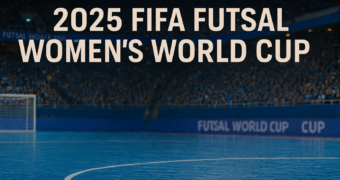
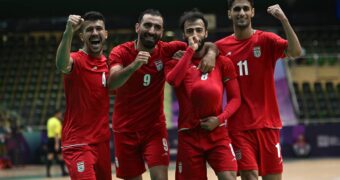
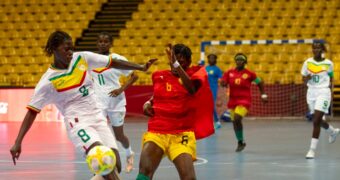
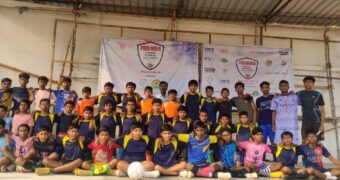





![Validate my RSS feed [Valid RSS]](https://www.futsalfocus.net/wp-content/uploads/2020/01/valid-rss-rogers.png)

